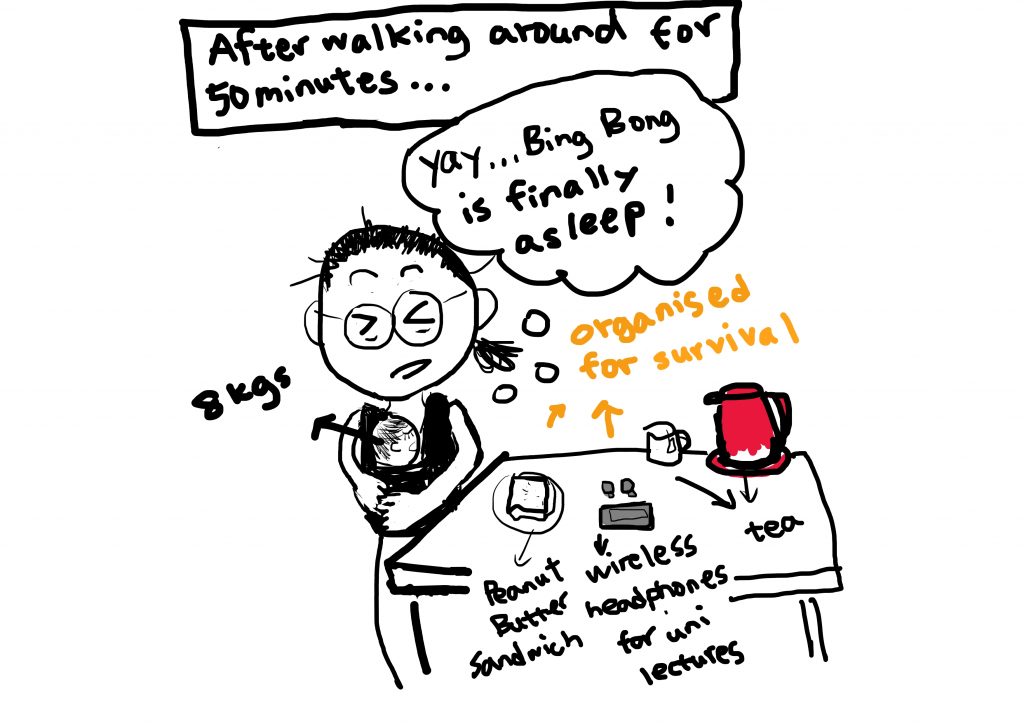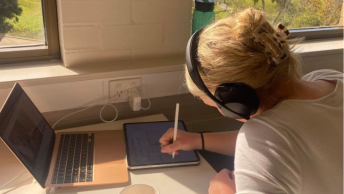Written by Valerie Chen
Being a migrant is no walk in the park.
Migrating, for me, was quite an odd but exciting experience as I had to constantly learn new things, from Aussie English to superannuation.
Part of everyday life was not understanding what people were saying and having no idea what to expect in an everyday environment (such as at a petrol station).
It can be anxiety inducing and frustrating. Adding studying in a second language to the mix can be overwhelming.
In this blog, I’d like to share with you some mindset tips and strategies that helped me achieve high grades.

- Believe in yourself
There are many things in life that might weaken your confidence when you are a migrant.
Such as having trouble explaining something you know in English or struggling learning how to drive in Australia (I am from Taiwan so we drive on the other side of the road).
It is very important to remind yourself constantly how far you have come from your first day in Australia. It is a gift being able to speak more than one language.
Acknowledge your limitations but don’t let it limit your capacity to achieve whatever you want.
There are countless extraordinary migrants all over the world achieving amazing goals, and you don’t need to speak perfect English to live your ideal life.
Go ahead and set big goals!

- Don’t compare yourself with anyone else
Focus on your own learning and growth.
I used to feel envious when I saw others excelling when I was struggling. Now I recognise that everyone is running their own race.
Our past experience influence how we think, react and make decisions. You may feel that you are starting fresh in a new country, but you bring your own unique life experiences and all of the insight and strength that has given you.

- Get involved in community events, student clubs or volunteer
Give yourself the opportunity to meet different kinds of people and express yourself.
Some people don’t want to get to know who you are, that is okay. Sometimes you might feel left out in a group as you communicate differently.
It is certainly daunting to begin with but flexing your social muscles will make them stronger.
Take a risk and join that student club!
Take that volunteering opportunity!
Put yourself out there!
How does this help with study?
Social skills and communication skills boost confidence, which helps in all aspects of your life – group project situations, leadership, employability, and just the ability to engage with fellow students in an enriching way.
- Study smarter
Understand what task to prioritise and working on improving study skills.
- Before session starts
- Read subject outline from the previous year and ask yourself “how do I achieve my ideal grade in this particular subject?”
- Do as much preparation as possible. For example, if the subject requires a lot of writing, you can make time to learn about academic writing and find out all the resources you can get when you need them
Charles Sturt has a good collection of learning resources (access via Student Portal), and you can also book in with a Charles Sturt Academic Skills Adviser if you don’t know where to start.
- Read subject outline from the previous year and ask yourself “how do I achieve my ideal grade in this particular subject?”
- During the First Week
- Have a good understanding of attendance requirement, assessment tasks, weekly teaching schedule
Put all the tasks and assessments into a session planner so you can have an overview of your study commitment.
Have a look at the session planner each week and prioritise the more important/more urgent tasks. - Estimate the amount of time you’ll need for each subject and have a very honest assessment of your current weekly schedule
Do I need to cut back a few work hours?
Do I need someone to look after the kids for 3 hours over the weekend so I can write the assignment?
- Have a good understanding of attendance requirement, assessment tasks, weekly teaching schedule
- During the mid-session break
- Take at least a couple of days off to celebrate and reset. Catch up some social life and something makes you tick
- Catch up lectures or assignments that are running behind
- Look at the session planner and adjust weekly study plan accordingly
- Take at least a couple of days off to celebrate and reset. Catch up some social life and something makes you tick
Bonus tip for new parents / extra busy people
Get a pair of wireless earphones, download all the lectures so you can listen to your study materials while walking your baby in the pram or doing chores.
There you have it!
I hope this blog helps your study journey somehow and wish you all the best.

Check out Charlie’s latest posts!
- My Favourite Winter Recipe
- My Top Travel Destinations
- Beating the Winter Blues
- How I Started Charles Sturt’s First Thrift Society Club
- Tackling your first assessment










